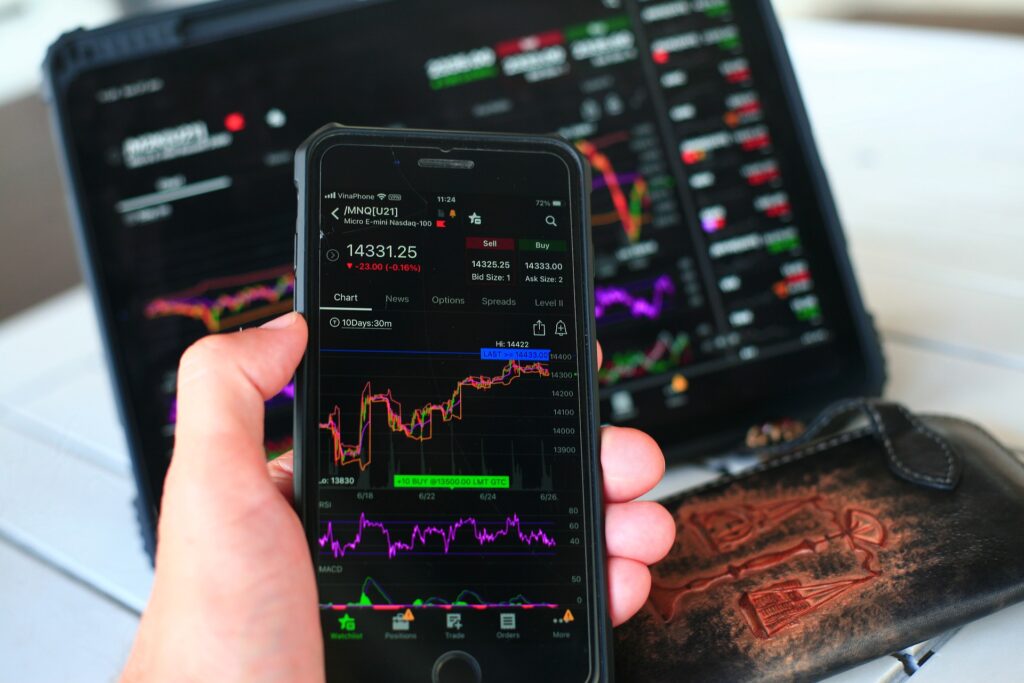CFD vs stock trading in Singapore
CFD trading in Singapore allows you to speculate on future movements in the underlying asset price without actually owning it. In contrast, stock trading is a form of direct investment in tradable financial instruments such as shares in companies and bonds issued by corporations and governments.
This means that both up and down movements will affect your position equally. In contrast, stock traders experience losses when share prices fall and benefit from value increases (however, the opposite will also be true for short positions).
The Singaporean market has recently opened up to CFDs, which means it is now possible for investors here to invest in these types of products too. So what exactly are these contracts? And why would you use them over regular stock trading in Singapore? Let’s take a look at this in more detail below.
What are CFDs?
CFD stands for Contract for Difference, a financial instrument that enables investors to take advantage of prices moving up (long positions) or prices moving down (short positions) on underlying assets such as stocks, commodities, indices, and foreign exchange.
At its most basic level, CFDs allow traders to make a profit by buying at a lower price than they sold it for when the market moves in their favour while selling at a more expensive price than they bought it at when prices move against them.
Suppose you are already accustomed to stock trading through investment banks or online brokerages. In that case, CFD trading probably won’t look too new to you because the mechanics are the same except that your brokerage or bank now acts as a counterparty to all of your trades rather than you having to find somebody else to trade with.
In any case, CFDs are usually considered riskier than trading in the underlying stocks because they have a leverage component involved which magnifies losses when prices fall and profits when they arise.
What is stock trading?
In contrast, stock trading is a form of direct trading in tradable financial instruments such as shares in companies and bonds issued by corporations and governments – for this reason, and it is sometimes referred to as investment banks used for purposes other than short-term lending. It is also called equity market investing to directly purchase or sell common stocks offered by public companies through brokers. When an investor purchases a stock, he buys the collective ownership in that company.
As you can imagine, trading stocks have their own set of risks attached to them since share prices are constantly changing based on market conditions which mean there is a substantial risk of loss when trading with investment banks or online brokerages.
Critical differences between CFD and stock trading
However, while these two forms of investment seem similar at first glance, they have their key differences. For example, you are directly investing in a specific corporation with stock trading. In contrast, cfd trading allows you to speculate on future movements in the underlying asset price without actually owning it – this means that both up and down movements will affect your position equally.
In contrast, stock traders experience losses when share prices fall and benefit from value increases (however, the opposite will also be true in reverse).
Conclusion
Contracts For Differences are widely used across Europe and Australia, mainly because they offer the trader an incentive to invest over more extended periods while using smaller amounts of money. This is perfect for both casual traders and professionals looking for profit but who don’t want to deal with the volatility of Singapore stock trading.
However, CFDs should always be approached with caution because you can lose more than your initial investment. It would be best to research the pros and cons of contracts versus other forms of trading before starting on this new journey. We recommend using a reputable online broker from Saxo Bank and opening the best cfd trading account today.



